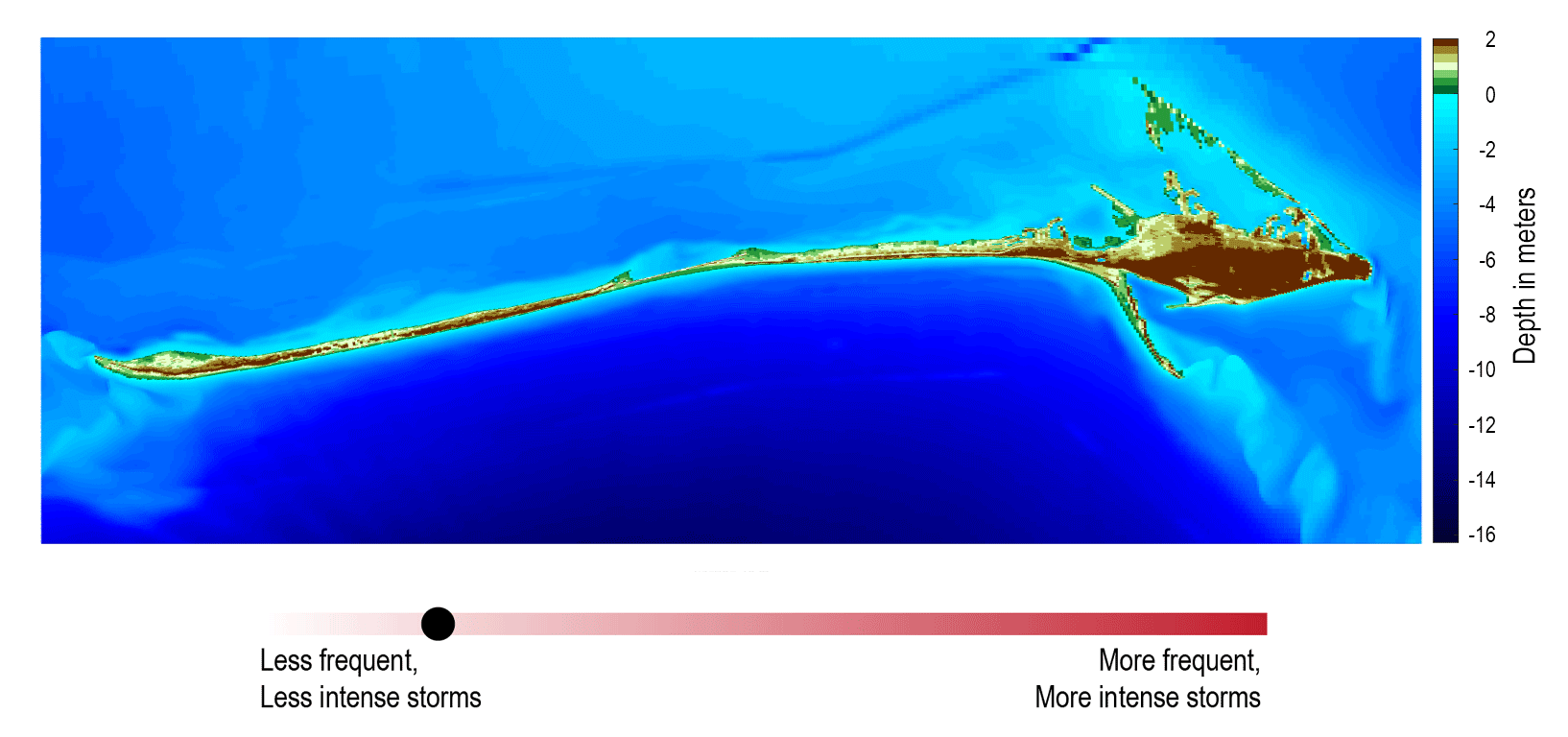“The roles of storminess and sea level rise in decadal barrier island evolution” published
A new manuscript published in Geophysical Research Letters by Davina Passeri (Research Oceanographer, SPCMSC) with USGS, USACE and academic collaborators illustrates how barrier islands will respond to changes in sea level and storminess over decadal time scales.
A study recently published in Geophysical Research Letters by SPCMSC Research Oceanographer Davina Passeri with USGS, USACE and academic collaborators describes how barrier islands evolve over decadal time scales. The study used computational models to assess the future response of a barrier island to higher sea levels and changes in frequency and intensity of storms (storminess). The study showed that both increased sea level rise and increased storminess resulted in less of the island keeping pace and more of the island losing height and width; this increased the vulnerability of the island to breaching during storm events. Under the most frequent and intense storm scenarios, the island lost significant amounts of land and drowned in just 10 years. “The roles of storminess and sea level rise in decadal barrier island evolution” is published by Geophysical Research Letters, an AGU publication.
Read what else is new at the St. Petersburg Coastal and Marine Science Center.



